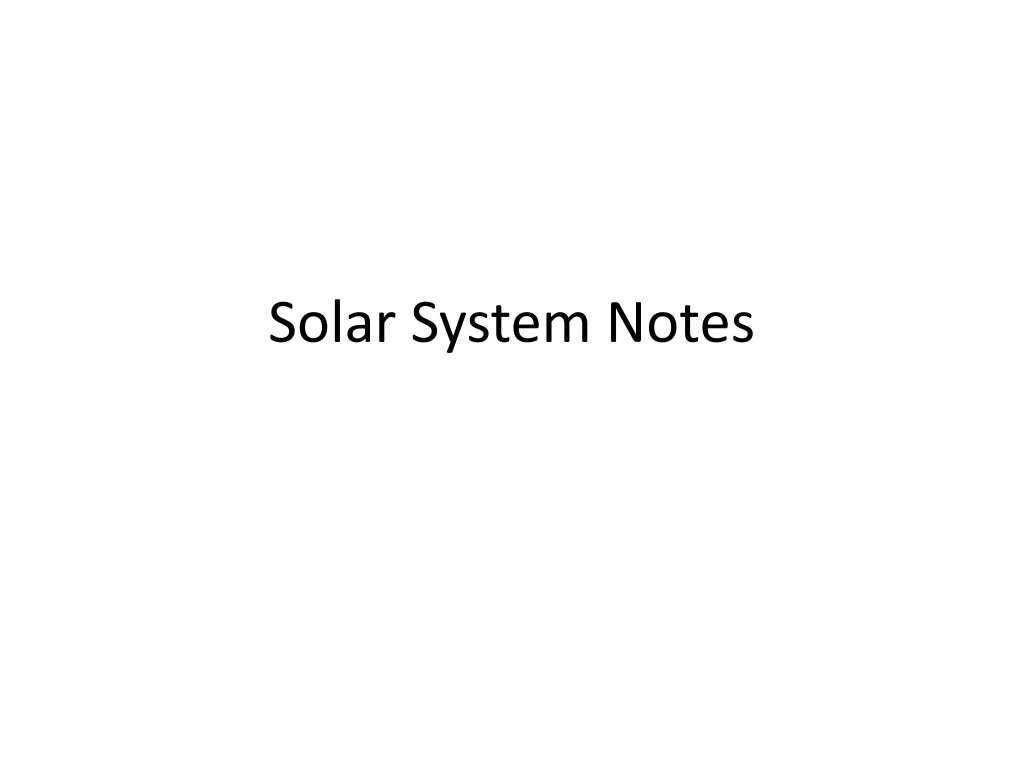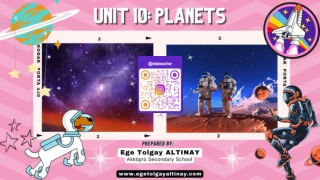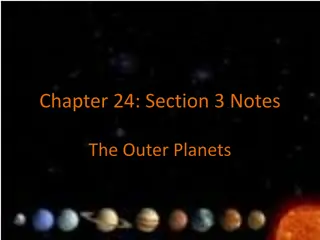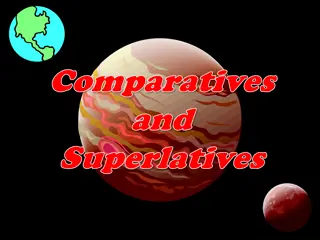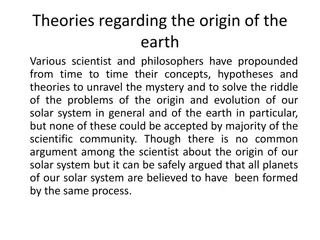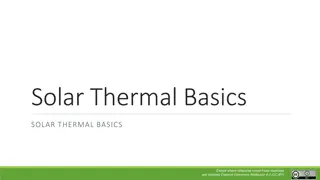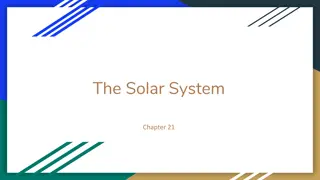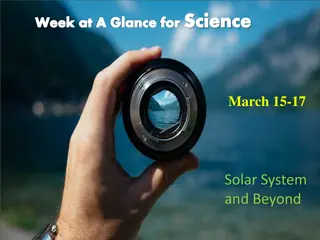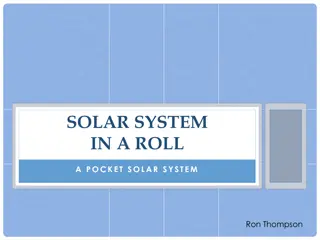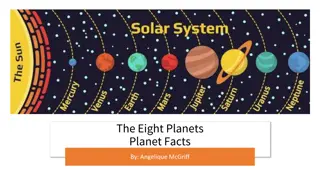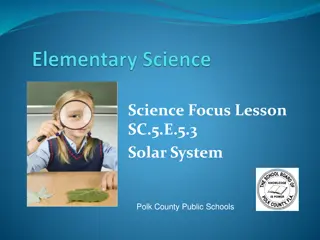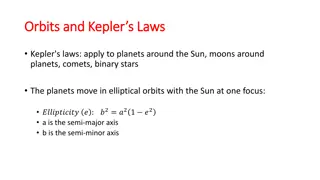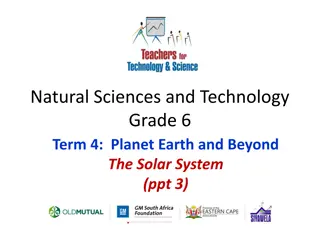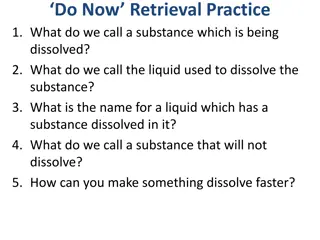Explore Our Solar System: Planets, Moons, and More
Delve into the wonders of our solar system, from Mercury, the closest planet to the Sun, to Jupiter, the largest planet with its multitude of moons. Learn fascinating facts about each planet's unique characteristics, including their distances from the Sun, lengths of days and years, and intriguing features such as Venus's thick atmosphere and Earth's diverse ecosystems. Discover the mysteries of Mars, the thin atmosphere of Saturn, and the icy moons of Uranus and Neptune.
Download Presentation

Please find below an Image/Link to download the presentation.
The content on the website is provided AS IS for your information and personal use only. It may not be sold, licensed, or shared on other websites without obtaining consent from the author. Download presentation by click this link. If you encounter any issues during the download, it is possible that the publisher has removed the file from their server.
E N D
Presentation Transcript
What determines day and year A day is determined by how long it takes a planet to rotate on its axis. A year is determined by how long it takes a planet to orbit the sun.
Mercury Closest planet to the Sun at 31.951 million miles away One day on mercury lasts approx. 59 days while one year lasts only 88 days The smallest planet Does not have any moons 2nddensest planet composed of heavy metals and rocks On mercury you weigh 38% what you do on Earth
Venus 2ndclosest planet to the sun (66.9 million miles away) A day on Venus is 243 Earth days long while a year is only 225 Earth days. Some scientists theorize that billions of years ago Venus had a similar climate to Earth Venus rotates clockwise on axis opposite of most other planets Venus is the hottest planet average Temp 863F Venus atmosphere is very thick and has a lot of pressure Does not have any moons
Earth Earth is the third planet from the sun (91.97 million miles) Earth s day is approx. 24 hours while the year is approx. 365 days Earth is the densest planet in the solar system Strong magnetic field Only planet know to have life. One moon that greatly influences Earth
Mars The 4thplanet from the sun (142.24 million miles from the sun) Second smallest planet Very thin atmosphere, not much protection from Sun The atmosphere is mostly CO2 There have been 18 successful missions to mars Mars has two moons Phobos and Demios Year=687 days Day=24.6 hours
Jupiter The 5thplanet from the sun (484.26 million miles) Largest Planet As of 2019 Jupiter has 79 moons, we continue to discover more there are Europa and Io to name a few Jupiter s great red spot is a high pressure region which is an ongoing storm that is hundreds of miles wide and has been raging for hundreds of years. Day=9hours and 55 minutes Year=12 Earth Years Average temp=-243F
Saturn The 6thplanet from the sun (930.44miliion miles from the sun. Saturn is the least dense planet. Saturn has 62 moons Saturn is the 2ndlargest planet Day=10hours 42 minutes Year=29 years Average temp -288F
Uranus 7thplanet from the sun (1.84 billion miles) Atmosphere is primarily hydrogen and heilum Day=17hours 14 minutes Year=84 years Temp range -153 to -370F Unusual rotation, almost totally on its side Has 27 moons some of the Larger ones are Titania and Ariel
Neptune The 8thplanet from the sun 2.78 billion miles Second to Jupiter it has the strongest gravitational force of all the planets Average temp=-353F Day=16hours and 6 minutes Year=164.8 years Atmosphere is made of Hydrogen, helium and methane Clouds of methane Very windy up to 700mph Neptune has 14 moons
Pluto Pluto used to be considered the 9th planet It is 3.6 billion miles from the sun Pluto has 5 known moons Day=6days 9 hours 43 minutes Year=248 years Pluto is one third water Average temp -400F Atmosphere is mostly nitrogen with trace amount of methane
Resources https://space-facts.com/mercury/ https://theplanets.org/venus/ https://www.universetoday.com/19382/how- many-moons-does-mars-have/
